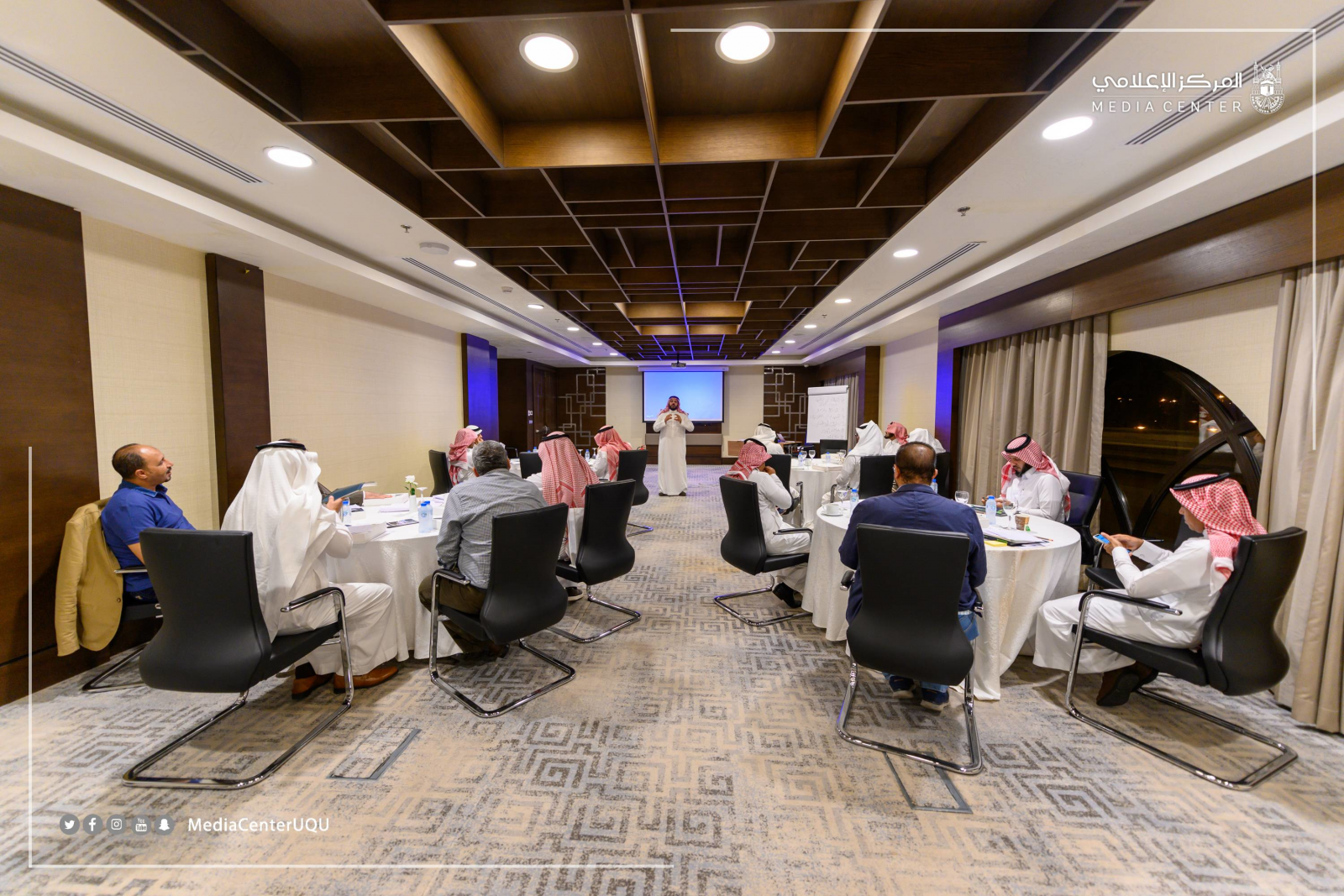
Forty male and female academicians in Umm Al-Qura University completed 30 hours of work on the “Empowerment Approaches in the University Environment” program organized by the Vice Deanship for Training, Deanship of Academic Development and Quality Assurance, last week.
The program aims to raise the foundations of cognitive and applied empowerment concepts, and the mechanism of participating in the provision of sessions with a scientific dimension, based on scientific practices and research.
The Dean of Academic Development and Quality Assurance, Dr. Muhammad Jaafar Thabit, said that this program, which is implemented by the deanship, comes as an extension of the development programs that have been carried out since the beginning of the current semester. These programs benefited more than 1,100 male and female academicians. He pointed out that the participants learned about the criteria of building relationships by defining their strategic objectives, which are clear and appropriate for the current state of the university, through generating options for designing an action plan that is consistent with the objectives of the university's strategic plan, “Tamkeen 2023”.
He pointed out that the program works to create more space among the staff of the university to foster a spirit of dialogue about solutions that contribute to personal productivity. This is in order to prepare human resources for modern empowerment practices.
Dr. Thabit stated that the program was designed to raise the levels of human resource development at the university to more than 82 percent. Within these programs, the highly skilled and efficient teams have been prepared to provide "Tamkeen" sessions in the university environment to enhance the level of productivity in performance.
He explained that participants can contribute to the training of students, staff and faculty members at the university, as well as graduates. By enrolling in training programs on the Deanship of University Development and Quality website, they can engage in training to enable beneficiaries to develop internal solutions to issues of concern to them, provided that these issues are related to practical and university life.